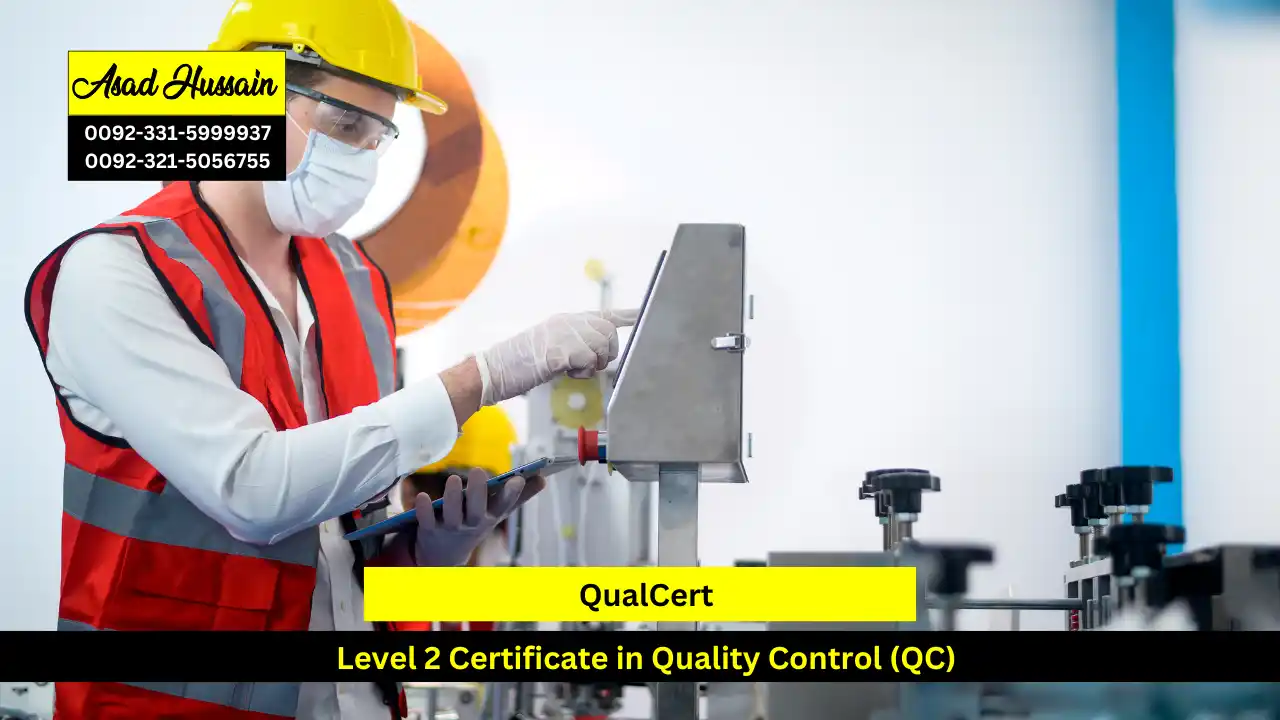Quality control (QC) is the cornerstone of ensuring products and services meet or exceed customer expectations. Whether in manufacturing, healthcare, technology, or any industry where quality is paramount, a Certificate in Quality Control equips individuals with essential skills to uphold standards and drive continuous improvement. This certification serves as a testament to one’s proficiency in monitoring processes, identifying defects, and implementing corrective measures to enhance overall quality. Let’s delve into what makes a Certificate in Quality Control invaluable in today’s competitive landscape.
A Certificate in Quality Control is designed for professionals aiming to specialize in maintaining and improving product or service quality. It covers fundamental principles of quality assurance, statistical methods for data analysis, and the application of quality management tools like Six Sigma and Lean principles. Participants learn to conduct inspections, perform tests, and assess compliance with industry standards and regulations. This certification is ideal for individuals looking to start a career in quality control or advance their existing roles with a solid foundation in quality assurance practices.
By earning a Certificate in Quality Control, professionals demonstrate their commitment to maintaining high standards and driving organizational success through effective quality management practices. This certification enhances career prospects by validating expertise in quality control methodologies and preparing individuals for roles that require meticulous attention to detail, analytical skills, and a focus on continuous improvement.
In conclusion, the Certificate in Quality Control serves as a gateway to unlocking opportunities in industries where quality is non-negotiable. Whether you’re aiming to establish a career in quality assurance or elevate your current role, this certification equips you with the knowledge, skills, and credentials to excel in maintaining product or service excellence. Embrace the journey to mastering quality control and contribute to organizational success through meticulous quality assurance practices.
Program Highlights
Mandatory Units
- Module 1: Advanced Quality Control Principles
- Module 2: Statistical Process Control (SPC) Mastery
- Module 3: Root Cause Analysis and Problem Solving
- Module 4: Quality Control Tools and Techniques
- Module 5: Quality Management Systems (QMS) and Standards
- Module 6: Advanced Inspection and Testing
- Module 7: Quality Auditing and Compliance
- Module 8: Advanced Statistical Analysis
- Module 9: Leadership in Quality Control
- Module 10: Ethical Considerations in Quality Control
- Module 11: Capstone Quality Project
To ensure that participants can effectively engage with and benefit from the Level 1 Diploma in Quality Control (QC) course, we have established the following entry requirements:
- Educational Background: Typically, participants should have a high school diploma or its equivalent (such as a GED). Some programs may require a minimum level of education, such as completion of secondary education, to ensure participants have basic academic skills.
- Language Proficiency: Proficiency in the language of instruction (usually English) is essential to comprehend complex course materials, actively participate in discussions, and complete written assignments.
- Age Requirement: Participants must be at least 18 years of age to enroll in this course.
- Industry Experience: While not always required, some programs may prefer or recommend that participants have some prior industry experience related to the field they intend to study. This can provide valuable context for understanding quality control principles.
- Level 1 QC Certificate (Recommended): While not mandatory, completion of a Level 1 QC certificate or equivalent foundational training is highly recommended.
Introduction to Quality Control Principles
- Understand the fundamental principles and objectives of quality control.
- Identify the importance of quality assurance in product or service delivery.
- Explain how quality control contributes to organizational success and customer satisfaction.
Statistical Techniques in Quality Control
- Apply basic statistical methods to analyze data and monitor process variations.
- Interpret quality control charts, histograms, and other statistical tools.
- Use statistical techniques to make informed decisions and improve process efficiency.
Quality Assurance Standards and Compliance
- Recognize and interpret quality assurance standards relevant to different industries.
- Understand regulatory requirements and their impact on quality management practices.
- Implement quality control measures to ensure compliance and meet industry standards.
Problem-Solving in Quality Control
- Apply problem-solving techniques such as root cause analysis and brainstorming.
- Identify common quality issues and their potential causes.
- Propose effective solutions to prevent recurrence of quality problems.
Documentation and Reporting in Quality Control
- Create and maintain quality control documentation, including inspection reports and non-conformance records.
- Communicate quality issues and recommendations effectively to stakeholders.
- Use quality control data to prepare accurate and informative reports for decision-making.
Quality Improvement Processes
- Participate in continuous improvement initiatives using quality improvement tools.
- Implement corrective and preventive actions to enhance product or service quality.
- Monitor the effectiveness of improvement measures and adjust strategies as needed.
Teamwork and Communication in Quality Control
- Collaborate effectively with team members to achieve quality objectives.
- Communicate quality control requirements and expectations clearly.
- Participate in quality control meetings and discussions to exchange ideas and feedback.
Ethical and Professional Conduct
- Demonstrate ethical behavior and integrity in all aspects of quality control activities.
- Uphold professional standards and responsibilities within the workplace.
- Adhere to codes of conduct and legal requirements related to quality management.
Safety and Quality Integration
- Understand the relationship between safety practices and product/service quality.
- Implement safety protocols and measures to enhance workplace quality control.
- Promote a culture of safety and quality within the organization.
Practical Application of Quality Control Principles
- Apply theoretical knowledge of quality control principles in practical scenarios.
- Demonstrate proficiency in conducting quality inspections and tests.
- Evaluate product/service quality and recommend improvements based on findings.
The Level 1 Diploma in Quality Control (QC) is ideally suited for individuals who are starting their career journey in quality management or seeking to enhance their foundational knowledge in this field. It is designed for high school graduates or equivalent, aged 18 and above, who are eager to understand the principles of quality control, statistical techniques, and compliance standards essential for ensuring product or service quality. This course caters to aspiring quality control inspectors, technicians, and professionals across industries where quality assurance plays a critical role. Whether you are entering the workforce or aiming to advance within your current role by gaining a solid grounding in quality control practices, this diploma provides the essential skills and knowledge to succeed in the field of quality management.







